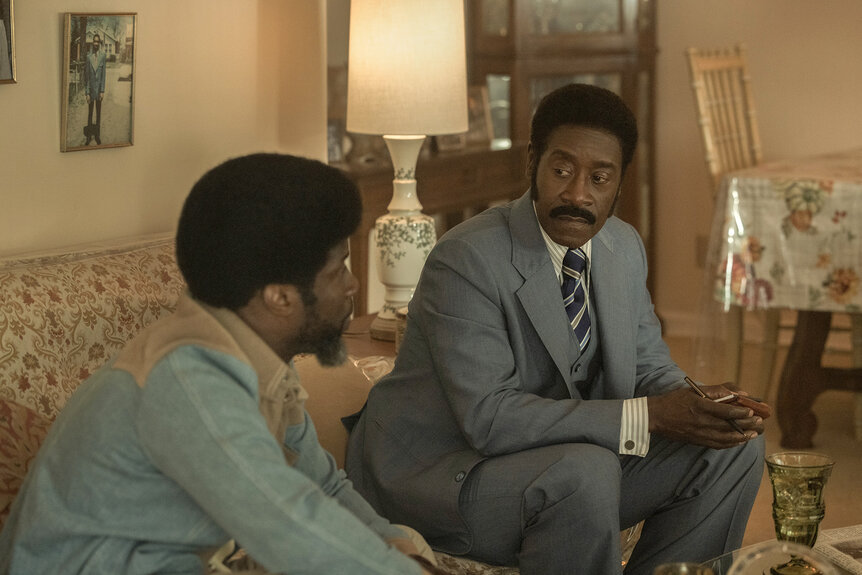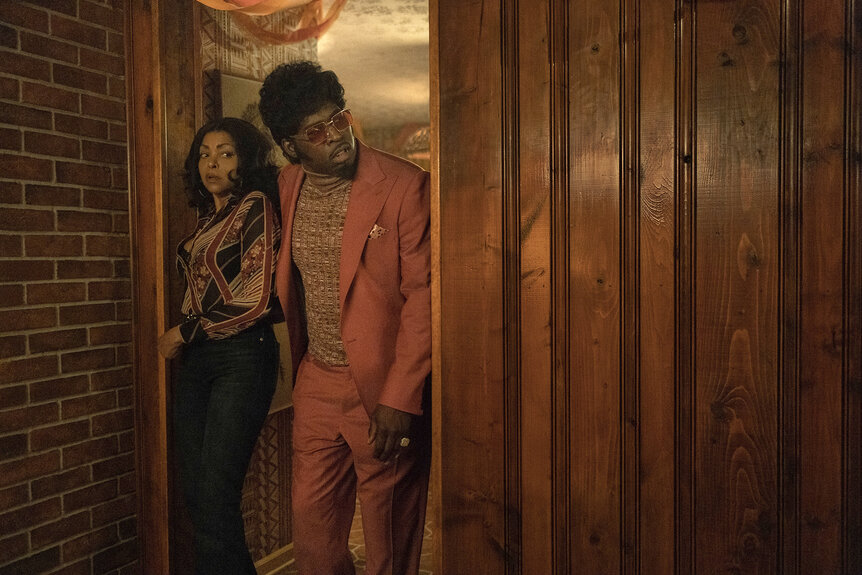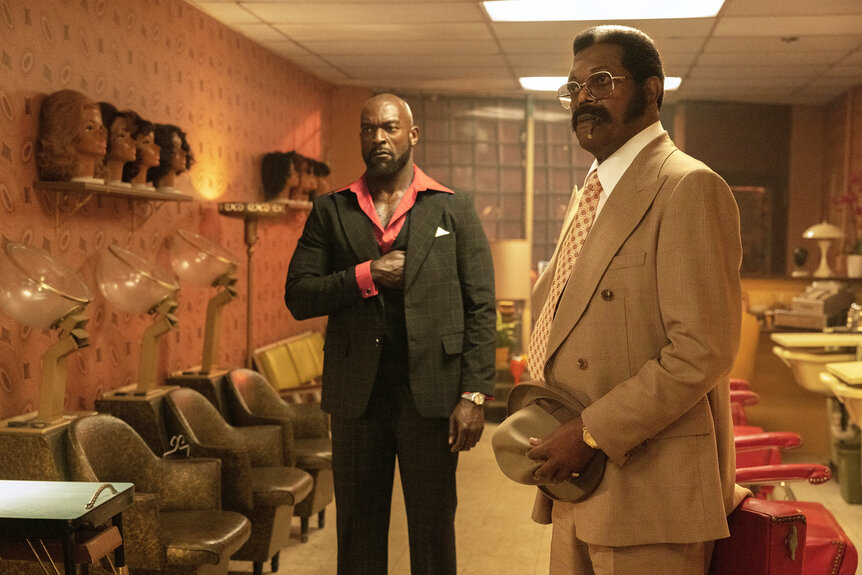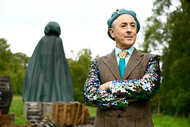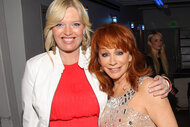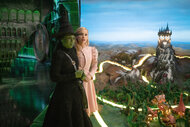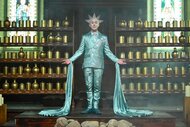Fight Night's Production Designer Shares Behind-the-Scenes Details of '70s-Era Show
The production designer took inspiration from Atlanta homes and Black culture to make the Peacock limited series feel authentic.
When the makers of Fight Night: The Million Dollar Heist sought to take viewers back to the '70s in the Peacock limited series, they turned to production designer Toni Barton to make it happen. And boy, did she deliver.
The production designer transformed the sets into such accurate and authentic spaces that even the actors and crew members felt like they were transported to a bygone era when they stepped into the space where they filmed the 1970 heist at the center of the series.
"I heard Taraji [P. Henson] walking down the hallway, and she said, 'This reminds me so much of my grandmother's house,'" Barton said in an interview with NBC Insider. "I peeked out and I looked and I said, 'Where does your grandmother live?' She said, 'in North Carolina.' And I felt so honored, because that's what's important to me."
Barton's success in creating this authentic and eclectic set is largely thanks to the small details that viewers might not even notice. From fire hydrants to signage, the production designer thought of it all.
"Fifty years isn't that long ago, but it's long ago. So there's not one location — interior or exterior — that we can walk into and shoot as is," she said, noting that she even had the crew paint over fire hydrants, which used to be black or green in the '70s. "It's simple things."
RELATED: Fight Night Changed the Way Terrence Howard Sees Kevin Hart: “I Was Always a Fan … ”
Another small element that viewers might not pick up on is the haze of smoke that fills the rooms in almost every scene — though Barton credits the props master for that.
"There was always smoking, because it has to be true to the time. And granted, everything is safe or herbal or whatever. I mean, that's a question for the props," she said. "But you know, if you are watching a show from 1970 and they're not smoking, something's wrong."
The Feel of Fight Night
Barton and set decorator Lance Totten didn't just want the set to look real, they wanted it to feel real. Knowing that the series — starring Kevin Hart, Don Cheadle, and more — is inspired by a true story that took place in Atlanta, described as a "Black Mecca" of the time, Barton wanted to include items that were characteristic of the homes in the area.
"These are the things that are important, like the wooden spoons that are on the walls, or the patterns of the wallpaper, and the mishmash, or the Mylar, the very reflective surfaces that would be very popular in the 70s," she said. "Those things that connect us to our childhood, that connect us to our grandparents, that connect us to our families, are essential.
Barton got so detailed, in fact, she toured houses in Atlanta, specifically in the Collier Heights neighborhood where the heist went down. In the process, she noticed that almost every residence had pickwick paneling. So, "it was essential that it was in the heist house," she said.
RELATED: All About Legendary Boxer Muhammad Ali and His Comeback Fight
Frank Moten's Penthouse
Barton had more fun with putting together the Hyatt Regency penthouse for Samuel L. Jackson's character Frank Moten, which she collaborated on with Totten and assistant art director Justin J. Jordan. "That was the set that everybody was like, 'What are you doing?'" she joked.
The eclectic space is perfectly suited for Jackson's character, a suave member of the Black mafia who is dressed to the nines in suits that look like they came from London's Saville Row.
"At one point, my set decorator Lance stopped me, and he was like, 'Toni, I don't know what you're doing. This is crazy, but I'm in for the ride,'" she continued. "And I love that, because I don't know that I knew what I was doing, but we went in for the ride, and I think it's a gorgeous ride when it's all said and done."
Don't just take Barton's word for it. Show creator Shaye Ogbonna praised the teamwork that took place on Fight Night's set, telling Variety, "I wish I could take credit for Ernesto’s [Martinez] amazing work with wardrobe. What Toni Barton did with production design, what Lawrence [Davis] and Duwana [Harris] did with hair, we had a fantastic team of craftspeople who got what we were trying to do, and they came through."
To see the results of the team's work on Fight Night, watch the 8-episode series on Peacock.




